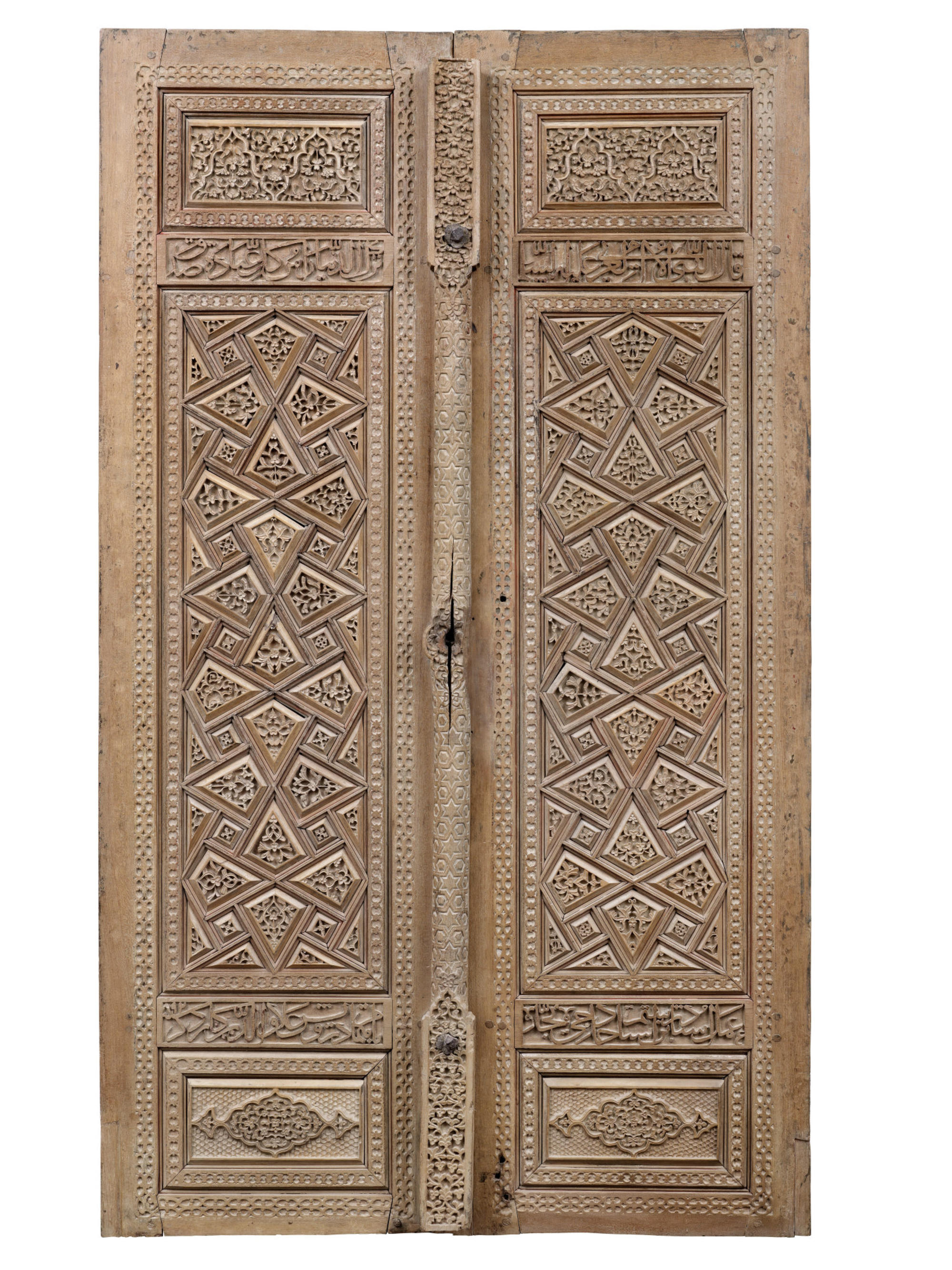Click on the image to zoom
Double Door
- Accession Number:AKM707
- Place:Iran, North Mazanderan
- Dimensions:179 cm x 106 cm
- Date:1487-1488/AH 892
- Materials and Technique:wood, carved
One of the finest examples of its kind, this object bears the characteristic features of Timurid carved wooden doors: deep, intricately carved floral designs inherited from the preceding Il-Khanid period and reminiscent of Chinese lacquer wares; geometric patterns formed by the tongue-and-groove technique; plaited borders; and panels inscribed with prayers and information about patrons, craftsmen, and dates of production. Mazandaran in northern Iran is known for its dense forests and sweetly scented khalanj wood and several examples of fourteenth- and fifteenth-century woodcarvings have been found in that region (Bronstein 1938, p. 2622). The doors share design elements with other doors from this period surviving in public and private collections: a cenotaph in the Khalili Collection, signed by Shams al-Din Sari and dated 902 H/1496 CE (London 2001, pp. 218-19); and pairs of doors in the Art and History Trust Collection, Houston, (Soudavar 1992, p. 94, no. 34) and in the National Museum of Iran, Tehran, signed and dated 846 H/1442 CE (London 1976, p. 292, no. 458).
References
Leo Bronstein, ‘Decorative Woodwork of the Islamic Period’, A.U. Pope, A Survey of Persian Art. Oxford, 1938.
N. Pourjavady, ed., The Splendour of Iran 3. London, 2001. ISBN: 9781861540119
London, The Arts of Islam. London, 1976, no. 458, 292.
Abolala Soudavar, Art of the Persian Courts: Selections from the Art and History Trust Collection. New York, 1992. ISBN: 9780847816606
Note: This online resource is reviewed and updated on an ongoing basis. We are committed to improving this information and will revise and update knowledge about this object as it becomes available.


